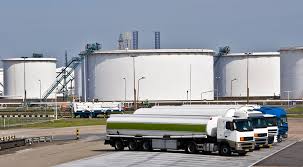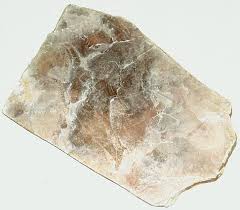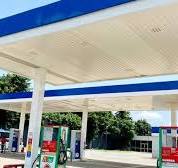Leasing and Operating a Tank Farm in Nigeria; The Feasibility Report.

In the last four (4) decade or so, petroleum (oil) has claimed the top position in Nigeria’s export list, constituting a very fundamental change in the structure of the country’s international trade. Oil prospecting began in Nigeria as far back as 1908 but production and export started in 1958 in Shell’s field located at Oloibiri. Other companies joined soon after independence and the number of oil producing and exporting companies now stands at about eleven (11).
Crude Oil Production in Nigeria increased to 1,782 BBL/D/1K in November from 1,390 BBL/D/1K in October of 2016. Crude Oil Production in Nigeria averaged 1,898.73 BBL/D/1K from 1973 until 2016, reaching an all-time high of 2,475 BBL/D/1K in November of 2005 and a record low of 675 BBL/D/1K in February of 1983.
The share of oil in total export value rose from less than one percent (1%) in 1958 to a peak of ninety-seven percent (97%) in 1984 and has not been less than ninety percent (90%) since then. In the first half of 1990, it accounted for over 95 per cent of total exports and its share of GDP has ranged between twenty-five percent (25%) and thirty percent (30%) in recent years.
Nigeria produces about two million (2,000,000) barrels per day and is the sixth largest oil producing country in the world.
The petroleum industry is usually divided into three (3) major components, upstream, midstream and downstream. Midstream operations are usually included in the downstream category.
The downstream oil sector is a term commonly used to refer to the refining of crude oil and the selling and distribution of natural gas and products derived from crude oil. It cuts across manufacturing, marketing, sales, distribution, transportation and haulage.
As at today, the four local refineries are only able to produce a third of the total daily consumption which is allocated to some few marketers through Pipelines and Product Marketing Company (PPMC) allocations while the Nigerian National Petroleum Corporation (NNPC)partners with tank farm owners along with major / independent oil marketers and contracted companies to make up the remaining seventy percent (70%) short fall.
In this regards a lot of foreign oil traders, refiners, trading companies and few individuals have made good use of this opportunity by augmenting this short fall.
There are significant investment opportunities in the downstream sector of the oil and gas industry in Nigeria. Statistics have it that there are over six thousand (6,000) independent petroleum products marketers and six (6) major marketers of distributing and marketing petroleum products across the country.
In line with the recent policy of the Federal Government of Nigeria on deregulation of the downstream oil industry which makes it possible for oil marketers to import and store refined petroleum products, this report examines the financial viability of leasing a tank farm located in Lagos, Nigeria.
The tank farm comprises of four (4) tank farms of combined capacity of fifteen million, eight hundred and eighty-eight thousand, seven hundred and fifty-two (15,888,752) litres for automotive gas oil (AGO) and two (2) of combined capacity of eleven million, four hundred and forty thousand, five hundred and seven (11,440,507) litres for dual-purpose kerosene (DPK).
The tanks are cylinder in shape and constructed with mild steel endo-skeleton and steel sheet exo-skeleton sheet of various sizes. The Jetty construction is made of reinforced concrete and finished with cement screed with pile foundation of about twenty – five (25) meters deep into the sea.
Automotive Gas Oil (AGO), also known as diesel, is generated from crude distillation process and is used to efficiently power internal combustion diesel engines.
Automotive gas oil (AGO) serves as the major alternative to power supply in Nigeria and it is also ideal to power heavy duty road vehicles like trucks, tractors and buses. The growing demand for energy for business and transportation necessitates a unique and reliable source of Automotive Gas Oil (AGO).
Dual purpose kerosene (DPK), popularly known as kerosene in Nigeria, probably has the highest demand and per liter profit of the three (3) refined petroleum products, with an estimated sixty percent (60%) of the entire population of the country using the product for cooking and lighting.
With the addition of some chemicals, kerosene can be used as aviation fuel, which is much more expensive than kerosene and at such some marketers divert the product to the aviation industry leading to scarcity of the product.
Nigeria currently consumes an estimated sixty million (60,000,000) liters of refined petroleum products (PMS, DPK and AGO) per day and with population of over one hundred and sixty – five million (165,000,000) people, growing at the rate of about 2.7% per annum with an estimated economic growth rate of 5.7% in the past five (5) years, the market for refined petroleum products in Nigeria, is established, growing and sustainable.
The investor would also to import, stock and sell automotive gas oil (AGO) and dual purpose kerosene (DPK)according to department of petroleum resources (DPR) specifications from reputable refineries in Russia, store the products in our tank farm and market same in the local market.
Table of Contents
EXECUTIVE SUMMARY 1.0 Business Overview 1.1 Description of the Business 1.2 Vision and Mission Statement 1.3 Value Proposition 1.4 Critical Success Factor of the Business 1.5 Current Status of Business 1.6 Description of the Business Industry 1.7 Contribution to Local and National Economy 2. Marketing Plan 2.1 Description of product 2.2 Petroleum Product Sourcing 2.3 The Opportunity 2.4 Pricing Strategy 2.5 Target Market 2.6 Distribution and Delivery Strategy 2.7 Promotional Strategy 2.8 Competition 3. Production Plan 3.1 Description of the Location 3.2 Production Equipment 3.3 Procurement and Import Process 3.3.1 Operational Process 3.4Production Cost 3.5 Stock Control Process 3.6 Pre-Operating activities and expenses 3.6.1 Operating Activities and Expenses 3.7 Project Implementation Schedule 4.0 Organizational and Management Plan 4.1 Ownership of the business 4.2 Profile of the promoters 4.3 Key Management Staff 4.3.2 Management Support Units 4.4 Details of salary schedule 5. Financial Plan 5.1 Financial Assumption 5.2 Start – Up Capital Estimation 5.3 Source of Capital 5.4 Security of Loan 5.5 Loan Repayment Plan 5.6 Profit and Loss account 5.7 Cash Flow analysis 5.8 Viability Analysis 6.0 Business Risks and SWOT Analysis 6.1 Business Risks 6.2 SWOT Analysis
Project Specification:
Additional Info
Get this Report
Direct bank transfer
To order the report, Please do pay the sum of ₦150,000 into
Account Name : Foraminifera Market Research Ltd
Account Number : 274 20 569 37
Account Name : Foraminifera Market Research Ltd
Account Number : 101 76 603 95
Account Name : Foraminifera Ventures
Account Number : 011 66 066 32
Make your payment directly into our bank account. Please use your Order ID as the payment reference. Your order will not be shipped until the funds have cleared in our account.
Instructions
After payment call us on 01 -29 52 413 / 08033782777 or email us at foraminiferamarketresearch@yahoo.com with the payment details. After payment confirmation, the soft copy of the report would be sent to you within 24 hours.



